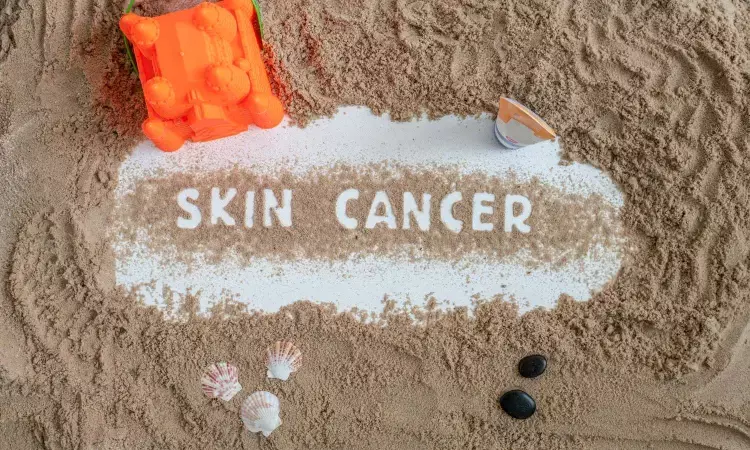- Home
- Medical news & Guidelines
- Anesthesiology
- Cardiology and CTVS
- Critical Care
- Dentistry
- Dermatology
- Diabetes and Endocrinology
- ENT
- Gastroenterology
- Medicine
- Nephrology
- Neurology
- Obstretics-Gynaecology
- Oncology
- Ophthalmology
- Orthopaedics
- Pediatrics-Neonatology
- Psychiatry
- Pulmonology
- Radiology
- Surgery
- Urology
- Laboratory Medicine
- Diet
- Nursing
- Paramedical
- Physiotherapy
- Health news
- Fact Check
- Bone Health Fact Check
- Brain Health Fact Check
- Cancer Related Fact Check
- Child Care Fact Check
- Dental and oral health fact check
- Diabetes and metabolic health fact check
- Diet and Nutrition Fact Check
- Eye and ENT Care Fact Check
- Fitness fact check
- Gut health fact check
- Heart health fact check
- Kidney health fact check
- Medical education fact check
- Men's health fact check
- Respiratory fact check
- Skin and hair care fact check
- Vaccine and Immunization fact check
- Women's health fact check
- AYUSH
- State News
- Andaman and Nicobar Islands
- Andhra Pradesh
- Arunachal Pradesh
- Assam
- Bihar
- Chandigarh
- Chattisgarh
- Dadra and Nagar Haveli
- Daman and Diu
- Delhi
- Goa
- Gujarat
- Haryana
- Himachal Pradesh
- Jammu & Kashmir
- Jharkhand
- Karnataka
- Kerala
- Ladakh
- Lakshadweep
- Madhya Pradesh
- Maharashtra
- Manipur
- Meghalaya
- Mizoram
- Nagaland
- Odisha
- Puducherry
- Punjab
- Rajasthan
- Sikkim
- Tamil Nadu
- Telangana
- Tripura
- Uttar Pradesh
- Uttrakhand
- West Bengal
- Medical Education
- Industry
UVB Phototherapy Does Not Increase Risk Of Skin Cancer among Atopic Dermatitis patients

Ultraviolet B (UVB) phototherapy is a commonly used treatment for patients with atopic dermatitis (AD), a chronic inflammatory skin condition. While UVB phototherapy has proven effective in managing AD symptoms, concerns have been raised about its potential long-term safety and the risk of developing skin cancer. However, a recent nationwide population-based cohort study published in the Journal Of The American Academy Of Dermatology has provided reassuring results, suggesting that UVB phototherapy does not increase the risk of skin cancer in AD patients.
Researchers Mei-Ju Ko and team conducted the study between 2001 and 2018, aimed to investigate the association between UVB phototherapy and the risk of skin cancer, nonmelanoma skin cancer, and cutaneous melanoma in AD patients. The researchers analyzed data from a cohort of 6,205 AD patients and compared the risks among those who received UVB phototherapy and those who did not.
● The results of the study showed no significant increase in the risks of skin cancer, nonmelanoma skin cancer, or cutaneous melanoma among AD patients treated with UVB phototherapy compared to those who did not receive the treatment.
● The adjusted hazard ratios (HR) for these risks were 0.91 (95% CI, 0.35-2.35) for skin cancer, 0.80 (95% CI, 0.29-2.26) for nonmelanoma skin cancer, and 0.80 (95% CI, 0.08-7.64) for cutaneous melanoma.
● The study found that the number of UVB phototherapy sessions did not have a significant impact on the risk of developing skin cancer, nonmelanoma skin cancer, or cutaneous melanoma.
● The adjusted HRs for these risks were 0.99 (95% CI, 0.96-1.02) for skin cancer, 0.99 (95% CI, 0.96-1.03) for nonmelanoma skin cancer, and 0.94 (95% CI, 0.77-1.15) for cutaneous melanoma.
The findings of this retrospective cohort study provide valuable insights into the long-term safety of UVB phototherapy for AD patients. The results suggest that UVB phototherapy treatment does not increase the risk of developing skin cancers in this patient population. Therefore, UVB phototherapy can be considered a safe and effective treatment option for managing AD symptoms.
It is important to note that this study had limitations, including its retrospective design. However, the large sample size and nationwide scope enhance the credibility of the findings. Further research, including prospective studies, may help validate these results and provide additional evidence on the long-term safety of UVB phototherapy in AD patients.
In conclusion, UVB phototherapy appears to be a safe treatment modality for patients with atopic dermatitis. The study's findings provide reassurance to both healthcare professionals and AD patients who rely on UVB phototherapy for symptom management. By demonstrating that UVB phototherapy does not increase the risk of skin cancer, this research contributes to the growing body of evidence supporting the use of this treatment approach in AD management.
Reference:
Ko, M.-J., Tsai, W.-C., Tsai, P.-H., Hsu, L.-Y., Chien, K.-L., & Wu, H.-Y. (2023). Ultraviolet B phototherapy does not increase the risk of skin cancer among patients with atopic dermatitis: A population-based retrospective cohort study. Journal of the American Academy of Dermatology. https://doi.org/10.1016/j.jaad.2023.05.037.
Dr Kamal Kant Kohli-MBBS, DTCD- a chest specialist with more than 30 years of practice and a flair for writing clinical articles, Dr Kamal Kant Kohli joined Medical Dialogues as a Chief Editor of Medical News. Besides writing articles, as an editor, he proofreads and verifies all the medical content published on Medical Dialogues including those coming from journals, studies,medical conferences,guidelines etc. Email: drkohli@medicaldialogues.in. Contact no. 011-43720751


